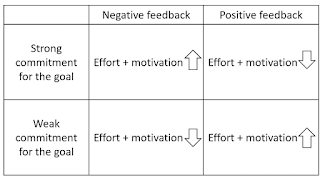Fifteen years ago, in a review article entitled Bad is stronger than good , Baumeister et al. (2001) documented research into the so-called negativity bias. The article cites research showing that negative events, emotions, and information impact us more strongly than positive ones do. They conclude their article by saying: "In our review, we have found bad to be stronger than good in a disappointingly relentless pattern. We hope that this article may stimulate researchers to search for and identify exceptions; that is, spheres or circumstances in which good events outweigh bad ones. Given the large number of patterns in which bad outweighs good, however, any reversals are likely to remain as mere exceptions."






